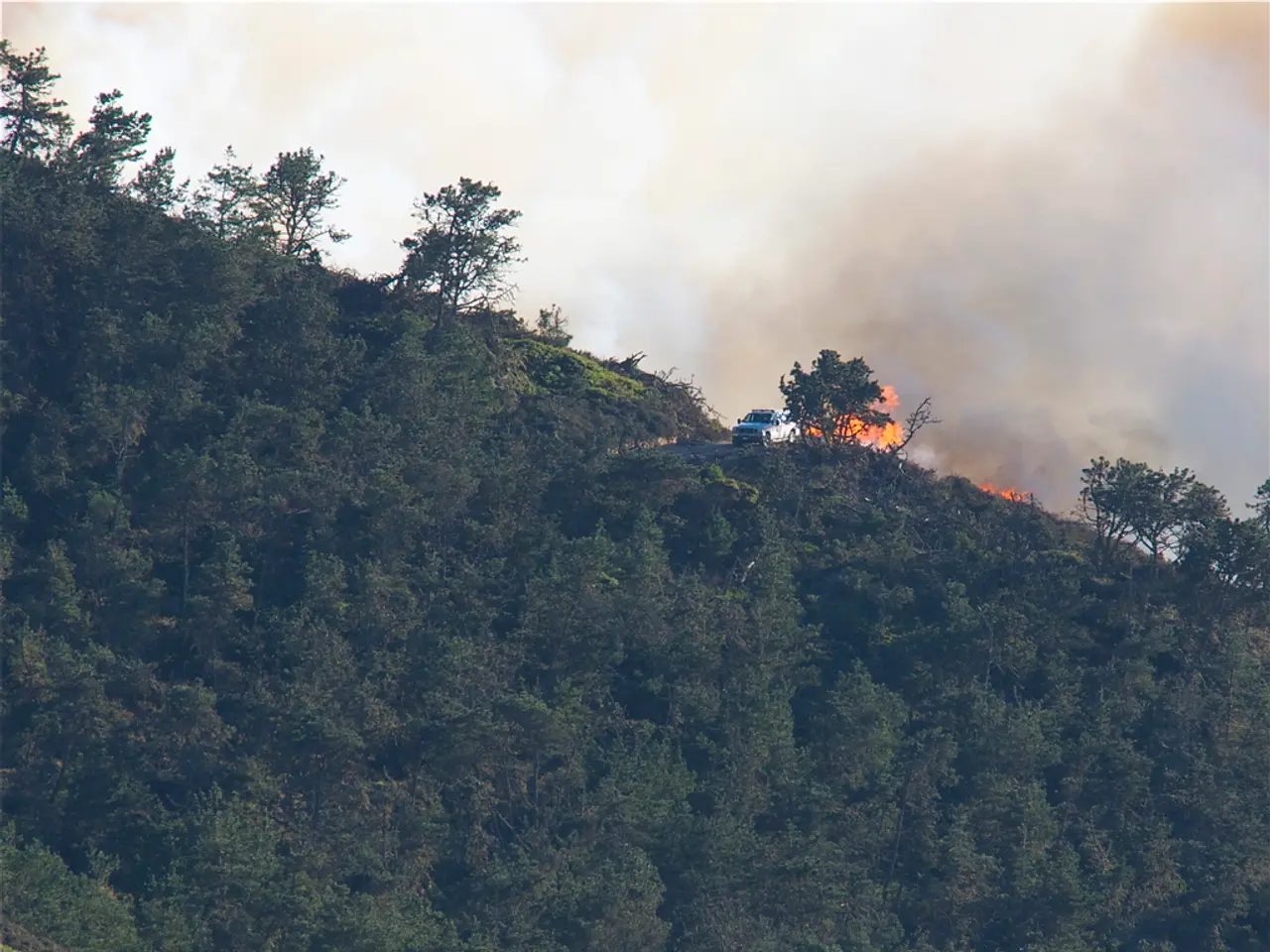Effect of Wildfire Smoke on Personal Health
In the face of wildfire events, the primary concern for everyone should be to seek out fresh air to minimize the harmful effects of smoke inhalation. Wildfire smoke is a complex mixture of particulate matter, fumes, and gases like carbon monoxide and cyanide, which can travel thousands of miles due to wind currents and affect people far from the actual fires.
Exposure to wildfire smoke can lead to a range of immediate symptoms such as shortness of breath, sore throat, cough, headache, dizziness, stinging eyes, and a hoarse voice. However, the long-term health impacts are more concerning. Studies have shown that prolonged exposure to wildfire smoke, particularly the fine particulate matter PM2.5, raises the risk of developing heart failure, especially in older adults, women, and vulnerable populations.
Persistent exposure to wildfire smoke also elevates the risks of chronic respiratory conditions, metabolic diseases such as diabetes, and neurological conditions like dementia. Exposure during pregnancy can result in lower birth weight, pre-term birth, and in severe cases, stillbirth.
To protect yourself, wearing medical-grade N95 masks is more effective than cloth or surgical masks in filtering out fine particles from smoke. Staying inside is recommended, especially for individuals with chronic respiratory diseases. Keeping windows closed and using an air conditioner can help improve air quality inside your home or car.
An air quality alert can be received via cell phone notifications or by visiting airnow.gov for real-time information on the air quality where you live. An air quality alert is determined by the number of different particles in the air, including ozone, nitrogen dioxide, sulfur dioxide, and carbon monoxide. If the air quality is above 200, it's a cause for concern, and everyone should stay inside.
Using an air purifier with a HEPA and carbon filter can help filter out damaging particles by up to 85%. Dr. Neha Solanki, a pulmonologist, discusses the dangers of wildfire smoke and ways to protect the air you breathe.
It is crucial to remember that wildfire smoke affects everyone, regardless of location, due to its ability to travel long distances with wind currents. The cumulative impact of wildfire smoke exposure poses a significant public health concern, necessitating measures to reduce inhalation of smoke, improve indoor air quality, and protect vulnerable populations during wildfire events.
[1] Environmental Health Perspectives. (2019). Long-term Health Effects of Wildfire Smoke Exposure. [2] Journal of Exposure Science & Environmental Epidemiology. (2020). Health Effects of Wildfire Smoke Exposure. [3] American Journal of Respiratory and Critical Care Medicine. (2019). Cardiovascular Effects of Wildfire Smoke Exposure. [4] Environmental Research. (2021). Immune System Alterations from Wildfire Smoke Exposure.
- To mitigate the threats of climate change, exploring effective workplace-wellness programs that promote fitness-and-exercise, healthy nutrition, and mental-healthcare can be a proactive step in reducing the overall impact on our health.
- Studies in environmental-science have highlighted the serious repercussions of chronic-diseases, such as respiratory-conditions and metabolic diseases, which can be exacerbated by wildfire smoke exposure.
- In the realm of skin-care, measures to protect against dryness, irritation, and other adverse effects caused by exposure to wildfire smoke need to be addressed, given its potential impact on sensitive areas of our body.
- The lingering effects of wildfire smoke on an individual's health, mainly lung function and respiratory health, may require specific therapies-and-treatments to ensure a full recovery from the long-term impacts.
- Consistent exposure to wildfire smoke can stimulate a range of concerns for healthcare providers, including not only the immediate symptoms of smoke inhalation but also the potential onset of medical-conditions that might manifest later.
- As we continue to grapple with the growing threats of climate change-induced events, such as wildfire, it's essential to pay attention to the health-and-wellness discourse surrounding air quality, climate change, and our overall environment.
- Seeking out accurate and reliable information from resources like Environmental Health Perspectives, Journal of Exposure Science & Environmental Epidemiology, American Journal of Respiratory and Critical Care Medicine, and Environmental Research can provide valuable insights into the health impacts of wildfire smoke exposure.
- Dr. Neha Solanki's research findings on the dangers of wildfire smoke and protective strategies for our respiratory health contribute significantly to our understanding of how we can protect ourselves from the detrimental effects of wildfire smoke in the travel arena and beyond.




